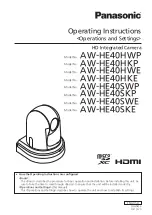
Compiling the software
PARD Capture comes as source code written in the C programming language. To
compile it into an executable program you will need to ensure that you have first
installed all the libraries it depends on (i.e. its dependencies). You will need the
developer libs for v4l2, gtk3, libjpeg and libpng. The audio GUI signals require the
PulseAudio libraries which may already come with your Linux as standard but, if not,
you must install it. Table 6.1 shows the libraries you need to install with their names as
used in Arch, Fedora, Debian and Ubuntu Linux distros:
Library
Arch
Ubuntu/Debian
Fedora
v4l2
v4l-utils
libv4l-dev
libv4l-devel
JPEG
libjpeg-turbo
libjpeg-dev
libjpeg-turbo-devel
GTK
gtk3
libgtk-3-dev
gtk3-devel
PNG
libpng
libpng-dev
libpng-devel
Pulse
libpulse
libpulse-dev
pulseaudio-libs-devel
Table 6.1 Dependencies for PARD Capture. Install these using your Linux installation method before
compiling the PARD Capture software.
Note: Arch Linux installs the developer parts of a lib as standard with each lib. Other
types of Linux need to specifically install the ‘dev’ or ‘devel’ versions of the lib.
Once all the dependencies are installed compile the PARD Capture code itself (called
pardcap.c) with gcc using the following command:
gcc `pkg-config --cflags gtk+-3.0` -Wall -o pardcap pardcap.c `pkg-config --
libs gtk+-3.0` -lm -lpng -ljpeg -lpulse-simple -lpulse
Once compiled, make the program executable using the chmod command:
chmod +x ./pardcap
You may then optionally put pardcap in a place that is on your PATH environment
variable so you don’t need a local copy of it wherever you intend to run it.
The following assumes you have PARD Capture on your system ready to run. At the
time of writing this manual only a Linux version of PARD Capture is available.
OptArc AF51 Camera Page 61 of 99 User Guide v1.02
















































